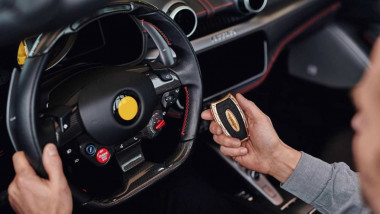In the rapidly evolving world of automotive technology, car keys have transformed from simple metal tools into sophisticated electronic devices. As vehicles become smarter, so do their keys. From keyless entry to biometric authentication, car key technology continues to push boundaries. Let’s explore the next frontier of car key innovations and how they’ll impact convenience, security, and vehicle ownership.
1. Digital Keys: Unlocking with Your Smartphone
One of the most exciting advancements is the rise of digital keys. These allow you to unlock and start your car using just your smartphone.
- How It Works: Digital keys rely on Bluetooth or NFC (Near Field Communication) technology to securely transmit signals between your phone and the car.
- Convenience: No more fumbling for keys. Your phone acts as your all-in-one device.
- Security Features: Many digital key apps offer encrypted access and the ability to revoke permissions instantly if your phone is lost or stolen.
This innovation is gaining traction among automakers and is expected to become standard in the near future.
2. Biometric Authentication: Keys That Recognize You
Biometric car keys are already starting to appear in premium vehicles. These keys use your unique physical features to grant access.
- Fingerprint Recognition: Similar to unlocking your phone, some car keys now scan your fingerprint to unlock the car.
- Facial Recognition: Cameras built into the vehicle can identify you and automatically unlock the doors.
- Why It Matters: Biometrics provide an additional layer of security, making it nearly impossible for thieves to gain unauthorized access.
This cutting-edge technology ensures that only you—and those you authorize—can start your vehicle.
3. Smart Key Customization: Personalization at Its Best
The future of car keys isn’t just about unlocking cars; it’s about creating personalized driving experiences.
- Pre-Set Preferences: Smart keys can remember your seat position, climate control settings, and even your preferred music playlist.
- User Profiles: In households with multiple drivers, smart keys can switch profiles based on who’s using the car.
- Why It’s Useful: This feature saves time and enhances comfort, making every drive tailored to your needs.
As vehicles become more personalized, smart keys will play a vital role in delivering these conveniences.
4. Ultra-Secure Encryption: Fighting Key Hacking
As technology advances, so do the tactics of cybercriminals. To combat this, car key technology is embracing stronger encryption.
- Rolling Codes: Modern key fobs use rolling codes that change with every use, making it harder for hackers to intercept signals.
- Blockchain Technology: Some experts predict that blockchain could be integrated into car key systems for unbreakable security.
- Impact on Security: These measures aim to eliminate vulnerabilities, ensuring that only the rightful owner can access the vehicle.
Advanced encryption is a critical step in securing the future of car ownership.
5. Integration with Smart Homes: A Connected Lifestyle
Imagine your car keys working seamlessly with your smart home devices. This future is closer than you think.
- Examples:
- Unlock your car and have your home’s lights turn on simultaneously.
- Use voice commands to lock your car doors through your home assistant.
- Convenience Factor: This integration enhances the interconnectedness of your daily routines, saving you time and effort.
As smart ecosystems grow, car keys will become a pivotal part of a connected lifestyle.
6. Eco-Friendly Innovations: Sustainable Car Keys
Sustainability is a growing concern in all industries, including automotive technology. Car keys are no exception.
- Recyclable Materials: Future car keys could be made from eco-friendly or recycled materials.
- Energy-Efficient Batteries: Expect longer-lasting, rechargeable batteries that reduce waste.
- Why It Matters: These changes not only benefit the environment but also align with the broader push toward sustainable vehicle manufacturing.
As the industry shifts toward greener practices, even car keys are becoming part of the solution.
A New Era of Car Keys
Car key technology is on the cusp of incredible transformations, combining convenience, security, and sustainability. Whether through digital keys, biometrics, or smart home integration, the future holds endless possibilities for making your driving experience safer and more seamless.
For car owners, these innovations mean less hassle, greater control, and enhanced peace of mind. As car key technology evolves, so does the way we interact with our vehicles—ushering in a new era of smarter and more secure mobility.

 (1)_1736346014.jpg)

_1749711943.jpg)
 (1) (1)_1736436407.jpg)
_1736343521.jpg)